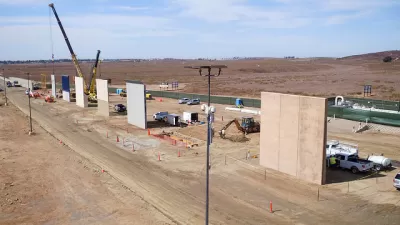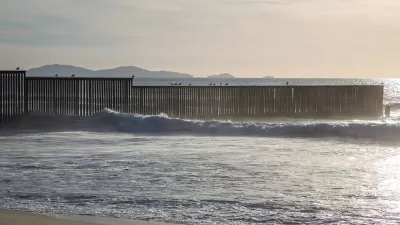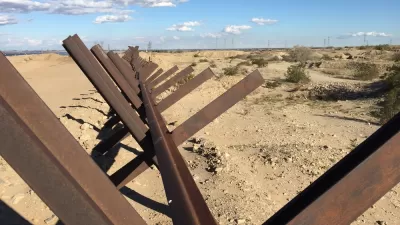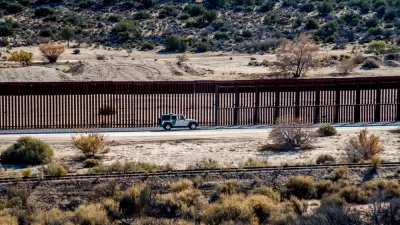In the drive to begin construction in New Mexico, the Trump Administration has bypassed dozens of federal environmental regulations.

This week, the Department of Homeland Security “announced that it would be waiving more than 30 laws, most of them environmental, to begin construction on a 20-mile-long stretch of bollard wall near the Santa Teresa port on the U.S.-Mexico border.”
Those laws include pieces of the legislation that make up the foundation of federal environmental protection, including the National Environmental Protection Act, the Clean Air Act, the Clean Water Act, and the Endangered Species Act.
Under the 2005 REAL ID Act, DHS Secretary Kirsten Nielsen has the right to waive any federal, state or local law to expedite construction in the border region, and this is not the first time she’s done so. Though the administration has not been particularly forthcoming about plans for the wall, the AP has reported that there are no plans for environmental review, and the Texas Observer has reported that at least part of it will bisect the Santa Ana Wildlife Refuge.
The potential for “ecological disaster,” however, has been established by both news organizations and the Army Corps of Engineers.
The Trump Administration has demonstrated a disregard for federal environmental regulation from the start, but this round of waivers also applies to parts of the American Indian Religious Freedom Act, Native American Graves Protection and Repatriation Act, and the National Historic Preservation Act.
FULL STORY: Trump administration waives over 30 laws to jumpstart border wall construction

Planetizen Federal Action Tracker
A weekly monitor of how Trump’s orders and actions are impacting planners and planning in America.

Chicago’s Ghost Rails
Just beneath the surface of the modern city lie the remnants of its expansive early 20th-century streetcar system.

San Antonio and Austin are Fusing Into one Massive Megaregion
The region spanning the two central Texas cities is growing fast, posing challenges for local infrastructure and water supplies.

Since Zion's Shuttles Went Electric “The Smog is Gone”
Visitors to Zion National Park can enjoy the canyon via the nation’s first fully electric park shuttle system.

Trump Distributing DOT Safety Funds at 1/10 Rate of Biden
Funds for Safe Streets and other transportation safety and equity programs are being held up by administrative reviews and conflicts with the Trump administration’s priorities.

German Cities Subsidize Taxis for Women Amid Wave of Violence
Free or low-cost taxi rides can help women navigate cities more safely, but critics say the programs don't address the root causes of violence against women.
Urban Design for Planners 1: Software Tools
This six-course series explores essential urban design concepts using open source software and equips planners with the tools they need to participate fully in the urban design process.
Planning for Universal Design
Learn the tools for implementing Universal Design in planning regulations.
planning NEXT
Appalachian Highlands Housing Partners
Mpact (founded as Rail~Volution)
City of Camden Redevelopment Agency
City of Astoria
City of Portland
City of Laramie





























